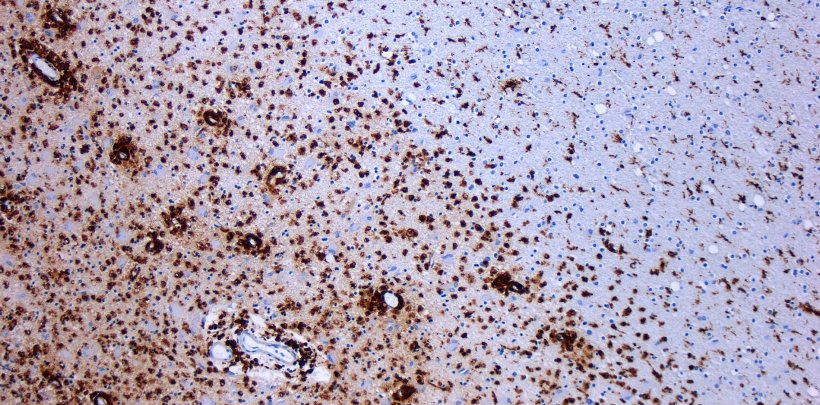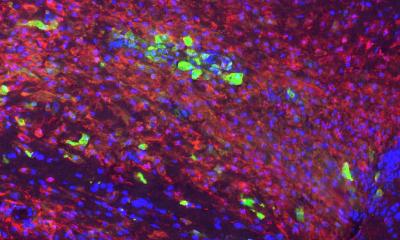
News • Double danger
MS patients at a greater risk of cancer, new study suggests
New results of a 65-year follow-up study of nearly 7,000 Norwegian patients with Multiple Sclerosis (MS) suggest that patients may have a greater overall risk of developing cancer than the general population, with an especially high risk of cancer in respiratory organs, urinary organs and the central nervous system.
Presented at the 5th European Academy of Neurology (EAN) Congress in Oslo, Norway, the Norwegian study also indicated an increased risk of developing haematological cancers in non-MS siblings of MS patients, compared with both MS patients and the general population.
Cancer type | Cancer risk among MS patients compared to the non-MS population |
Respiratory cancer | 66% increase in risk |
Central nervous system (CNS) | 52% increase in risk |
Urinary cancer | 51% increase in risk |
Overall cancer | 14% increase in risk |
Additional research could also identify the possible connections between haematological cancer and MS and new ways in which we could manage these conditions
Nina Grytten
This long-term analysis was based on patient records from 6,883 MS patients born between 1930–1979, who were registered with various Norwegian MS and Cancer Registries, and prevalence studies from Norway. The analysis also included data from 8,918 siblings without MS, and 37,919 non-MS individuals. “This study is the first to compare cancer risk in MS with non-affected siblings of MS patients. The risk assessment between these two groups is extremely interesting because they share the same genetics and environmental conditions,” noted Dr Nina Grytten, lead researcher of the study, from Haukeland University Hospital, Bergen, who presented the results at the EAN congress.
“Previous clinical studies of cancer risk in MS patients in various countries have shown inconsistent findings, so further research is needed to help improve our understanding in this area,” stated Dr Grytten. “This research outlines the need for greater awareness of cancer risk among MS patients, which should lead to shortened cancer diagnosis and more effective therapy in order to improve outcomes and survival.”
“Additional research could also identify the possible connections between haematological cancer and MS and new ways in which we could manage these conditions”, she added.
Recommended article

Article • Positron Emission Tomography
PET offers new multiple sclerosis insights
Positron Emission Tomography (PET) is helping to provide MS experts some insight into what drives progression of the disease. PET also has the potential to quantify the effects of new, targeted therapies on MS patients, according to consultant neurologist Professor Bruno Stankoff.
Multiple sclerosis is a lifelong disease that affects the central nervous system, especially the brain, spinal cord and optic nerves. It can lead to a wide range of symptoms, including problems with vision, arm or leg movement, sensation or balance. MS is one of the most common causes of disability in younger adults, and people with MS have on average 7 years shorter longevity.
Haematological cancer is a type of blood cancer that includes myeloma, lymphoma and leukaemia. There are many different types of haematological cancers, which can affect the blood, bone marrow and lymph nodes in the body. According to Dr. Grytten, the results of the investigation might suggest that MS and haematological cancer could share a common etiology, which can be important for future treatment of MS and prevention of both diseases.
Source: European Academy of Neurology (EAN)
28.06.2019











